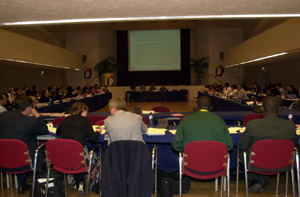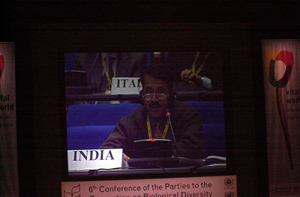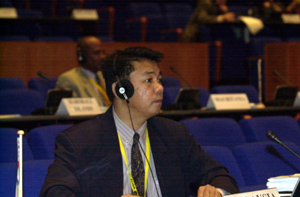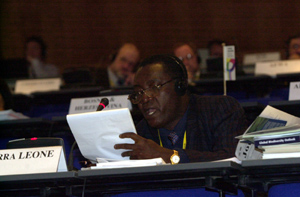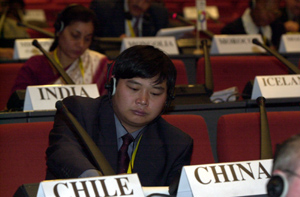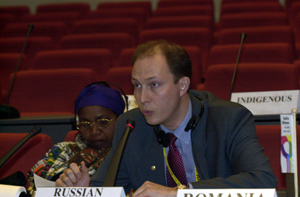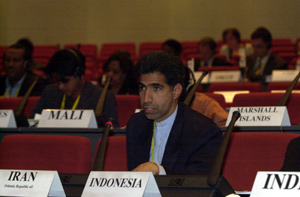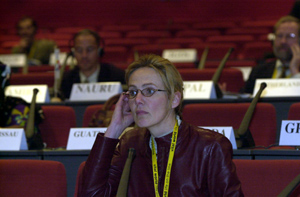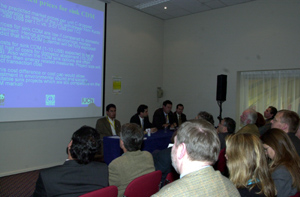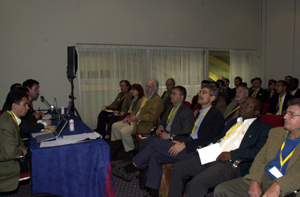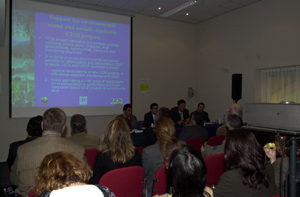|
|
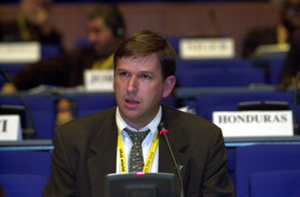
Cristián Samper, SBSTTA-6 Chair, outlined the importance of the Global Taxonomy Initiative,.and noted concerns expressed during SBSTTA-6 about capacity building and funding for a permanent programme officer at the Secretariat. |
|
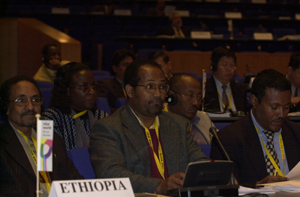 Ethiopia, on behalf of the AFRICAN GROUP, requested more harmonization with needs assessment and alien species. |
|
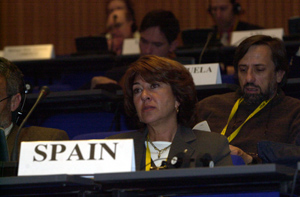 The EU said focal points should be indicated on a national scale and member states should assess their own capacity and taxonomic needs. |
|
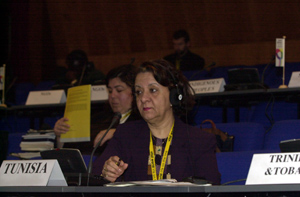 TUNISIA emphasized implementation at genetic, specific and ecosystem levels of biodiversity. |
|
| WORKING GROUP II: FINANCIAL RESOURCES AND MECHANISM | |
|
|
|
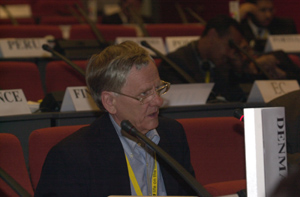 DENMARK supported COP guidance to the GEF on the Cartagena Protocol on Biosafety. |
|
|
|
|
| SCIENTIFIC AND TECHNICAL COOPERATION AND THE CHM: | |
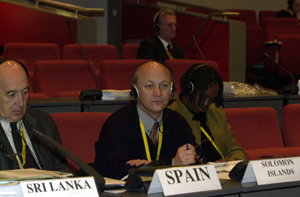 The EU supported including further activities in the CHM, providing use of Internet servers to developing countries,and stressed the need for training. |
|
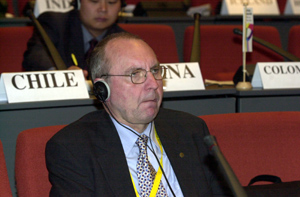 BELGIUM recommended developing the CHM toolkit and highlighted efforts to enable all Parties to take part in the CHM. |
|
| EDUCATION AND PUBLIC AWARENESS: | |
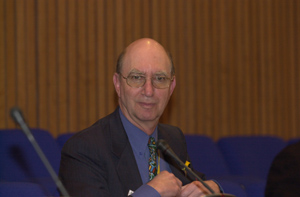 UNESCO highlighted its work on the Global Initiative on Communication, Education and Public Awareness (CEPA), noting its objectives to build a network of actors and knowledge holders, identify and collect expertise, and build capacity. |
|
 SENEGAL noted the need to focus on biodiversity rich areas with impoverished populations. |
|
|
|
|
| CONTACT GROUPS: | |
| FOREST BIODIVERSITY | |
| The "Friends of the Chair" group reported on progress in their work on priorities. Delegates debated language regarding reporting on implementation, with some noting the need to reduce national reporting requirements. | |
| ACCESS AND BENEFIT-SHARING | |
| In an evening session, the contact group reached a compromise regarding derivatives and products, adding the reference to the provisions on prior informed consent and mutually agreed terms and removing it from the provision on scope. | |
| SIDE EVENT: | |
| IUCN: "Forests, People, and Climate Change." | |
|
Brett
Orlando of IUCN - The World Conservation Union, Jens Mackensen of UNEP, and
Stephen Kelleher of WWF, gave presentations on a joint side event entitled
"Forests, People, and Climate Change." The side event sought
to update participants at the CBD COP of developments in the climate change
negotiations and to trigger discussion on how the CBD process could
contribute to ensuring that carbon sequestration activities under the Kyoto
Protocol contribute to the conservation of biological diversity and the
sustainable use of natural resources. Alvaro Luna of IUCN moderated
the discussions. |
|
|
Links: The
CBD home page COP-6
Provisional Agenda |PDF|WORD| |
|
|
|| Back to Linkages home || Visit
IISDnet || Send
e-mail to ENB ||
©
2002, IISD. All rights reserved.

